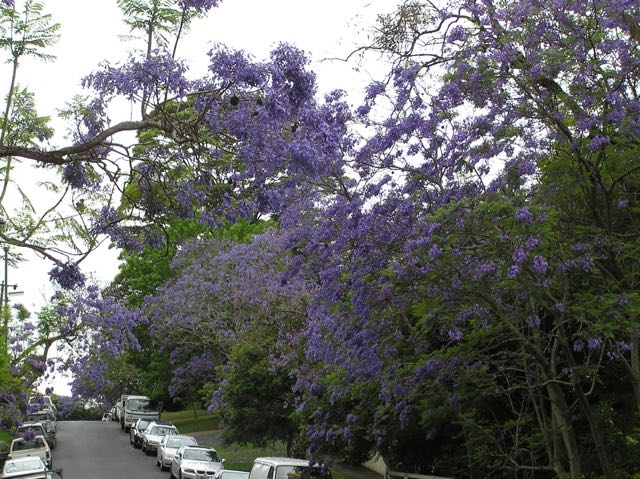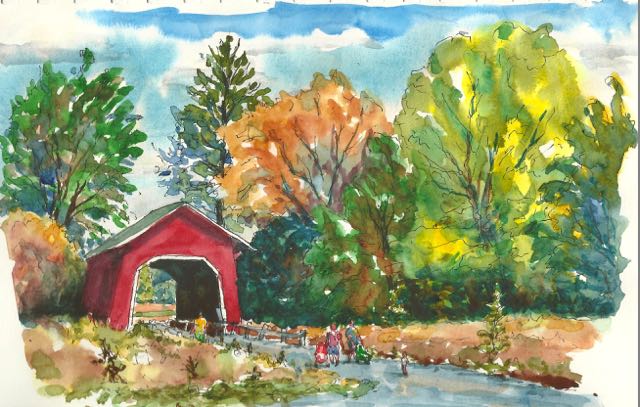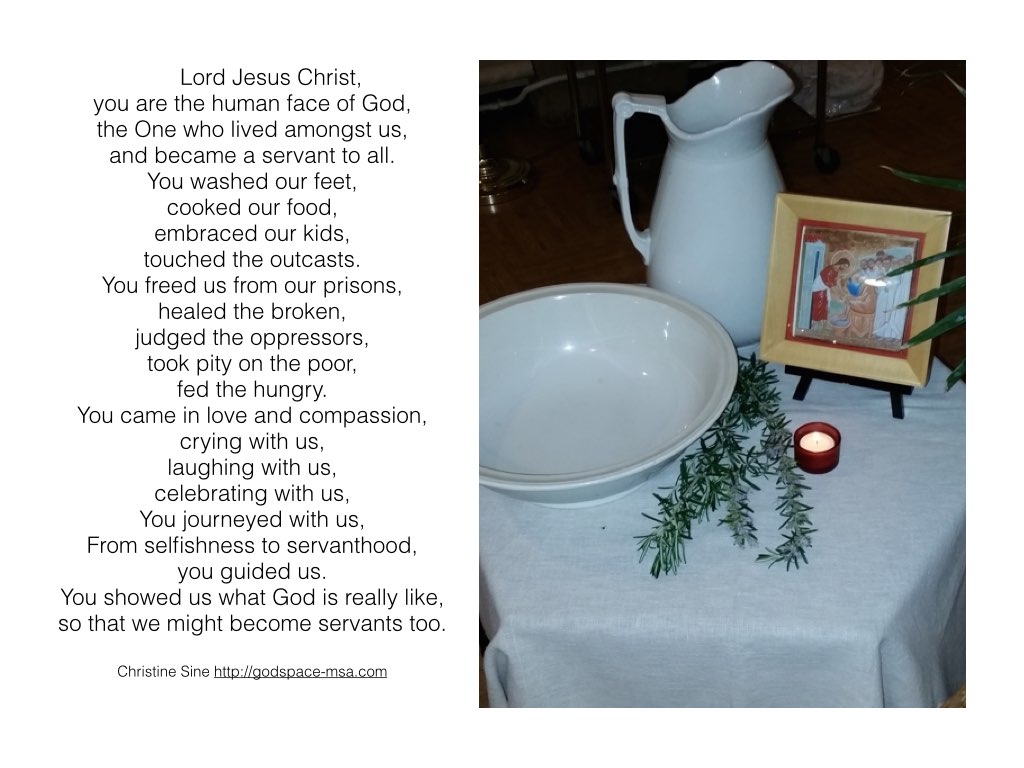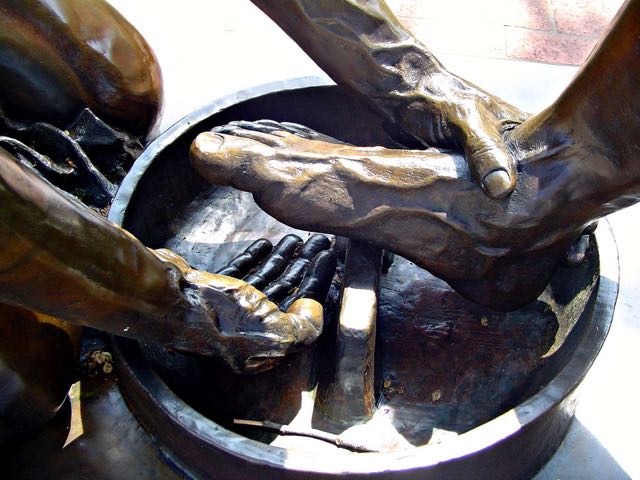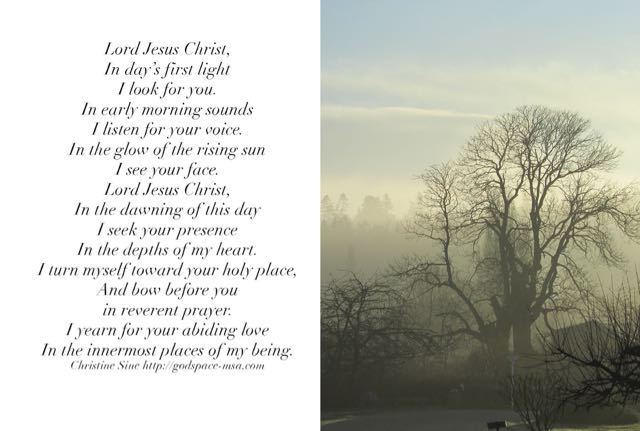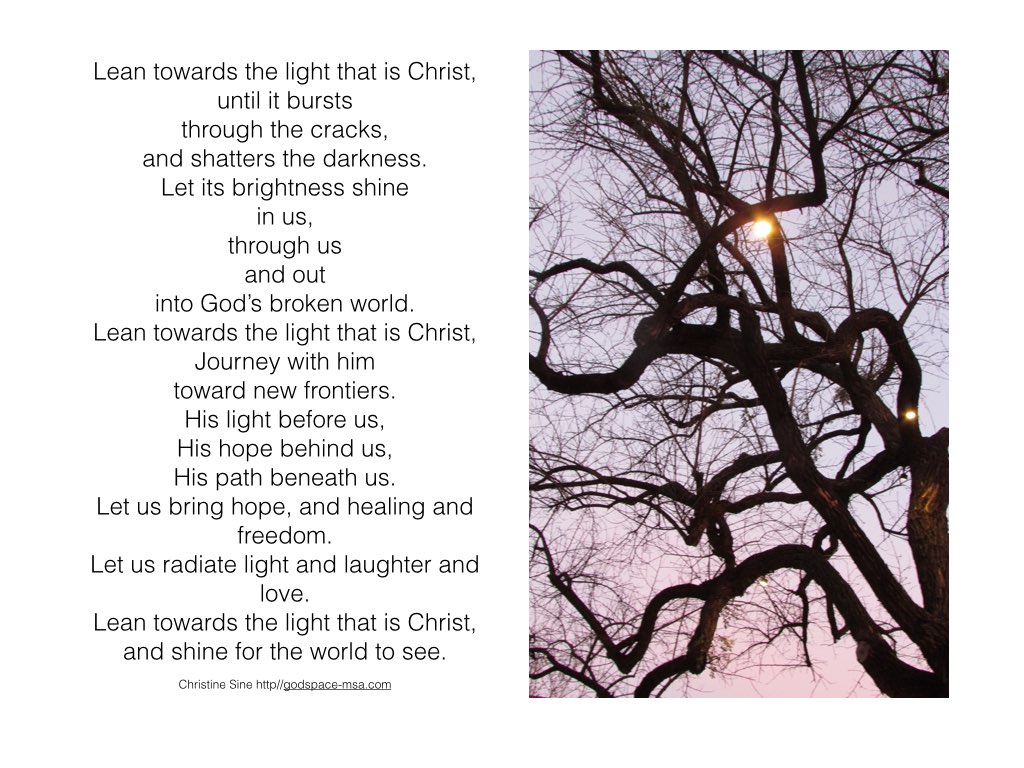About 9 years ago, my husband Karl and I got lost up the mountains in the middle of a Cape Town winter in South Africa. We had a guide book with us, but lost the path and ended up bundu-bashing up a steep creek in order to reconnect with the path on top of the mountain above Suikerbossie in Hout Bay. The sun was preparing to dip below the horizon when we came to the verge of a sheer escarpment and then a drop, into apparent nothingness. We bumped into two Californian students who had also lost the path at the same point in time and phoned rescue services twice, were promised a helicopter, but in fact both calls were not even logged which left us stranded!
With a failing cell phone battery, after those calls, we had no way of communicating with the outside world. Thankfully it had been an unusually warm winter’s day, but June up the mountain in the middle of the night in Cape Town is no joke! We knew we couldn’t risk the downward backtrack in the dark even though we had a headlight, being far too risky to possibly slip and fall into unknown dangers. So we walked instead to keep warm, across the tops of the 12 Apostles, a long range of mountains, throughout the night, stopping for naps and continuing our journey when it became too cold… all the way to the side of Table Mountain when dawn light pinked the mountains as we walked up the final countless steps, with Karl pulling me up step by step to the top. We ended up on page 3 of the city newspaper, The Argus. And then I found myself heading for a burn out at work, from the post traumatic stress of it all!
However, on the other side of that mountain ordeal, our pilgrimage together throughout that long lonely night, taught me some very important things. It showed me what uniting together can do, “For where two or three gather in my name, there am I with them.” (Matthew 18:20). Even when I thought God let us down and left us alone, I was in fact learning deep lessons of strength and endurance. I learnt that there were reserves in me I never knew existed. And that when I come to really challenging circumstances in life, there is something that night up the mountain that taught me, that with the help of God and with the help of others I can accomplish much more than I ever think I am able.
We all have within us reserves of hidden resilience. When we are pushed beyond our feeling of ability, God rises up in our weakness. There are buried treasures inside of us that we discover, only under certain conditions. Sometimes life narrows into a seemingly impossible to navigate corner before we discover a solution rising up from within that we would never have accessed in the easy to navigate terrain of everyday life.
When we are pushed into a corner like this and all of life feels like a brick wall, it is then we find, Jesus weeping with us in our pain and disappointment. And then we come to see life in a completely different way when he calls forth resurrection into our situation, as what is dead suddenly comes out of a tomb into the light. We are instructed to take off the grave clothes and walk out of that tight corner into a whole new way of being and doing.
Heading toward my 40th birthday, at times I’ve felt as though I’m approaching a hidden corner. The mountain pilgrimage serves again to remind me that my weakness becomes a catalyst for God to release surprising reserves to resurrect within me. United in the Trinity and within the support of my loving family and friends I will find a path to cross over into the new day. It is not necessarily the path I expected by this time in my life. It is rather something much better, the path God has chosen for me. When I recognise that, thankfulness flows and gratitude shapes my perspective in such a way that I can no longer desire the “should have” “could haves” any longer. I can live in and embrace the “what ares”, the “what is” and find peace in the centre of my being.
With God comes a new way as my depleted reserves become an unlocking of doors, a new pilgrimage to navigate with the Journey Master of my Life, Jesus Christ. His love perseveres into eternity with me and for me. He shows me what is of true value, of true importance. “Step forward in my love each day and embrace my will for your life.” This is what He shares with me. This is what is needed.
And who knows what is waiting for me on the other side of 40? But with my God I am on the threshold of life peeking into something altogether new and realising that what felt old and stale is actually the dying of old seed husks so that new shoots can poke out of the soil and start becoming what they were always meant to be. And I am determined to allow the growth of this pilgrimage to do its work so that those plants will grow without undue hindrance, into a harvest.
I am learning to let the path go where it wills, and let it be what it needs to be.
To let it be what it is.
As you listen to this song “Shepherd” by Amanda Cook, you will find the prayers of a pilgrim rising up to the Father:
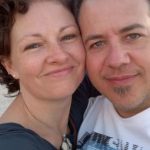 Jenneth Graser lives in Cape Town, South Africa where she has lived for most of her life but has also lived in North Vancouver when her family immigrated there in the early 80’s, and in Toronto, Canada. She is married to Karl and they have three daughters who are being homeschooled. Karl and Jenneth facilitate a contemplative group called Free Flow, and are on the eldership of the Bay Community Church in Muizenberg. She has written “Catching the Light: a Devotional”. Jenneth’s contemplative songs, audio devotional podcast and blog poetry may be found at: www.secretplacedevotion.weebly.com
Jenneth Graser lives in Cape Town, South Africa where she has lived for most of her life but has also lived in North Vancouver when her family immigrated there in the early 80’s, and in Toronto, Canada. She is married to Karl and they have three daughters who are being homeschooled. Karl and Jenneth facilitate a contemplative group called Free Flow, and are on the eldership of the Bay Community Church in Muizenberg. She has written “Catching the Light: a Devotional”. Jenneth’s contemplative songs, audio devotional podcast and blog poetry may be found at: www.secretplacedevotion.weebly.com
It is heading towards midday on a beautiful spring day here in Australia. I find myself with an idea brewing, a question in my mind, and God in my heart. Not a bad place to be. What of all the lessons about journeying to God do I share?
And so I start with the mess..
The ‘Beck’s Life’ journey has been full of twists and turns. It has taken me down dark corridors of wondering if I would ever see the light again. Serious illness, rebellion, breakdown, suicide attempts, abandonment, divorce ¬- just to put a label on a few. You would be forgiven for thinking that most people don’t fully recover from something like that list. But that is just it. It’s a list of things that are past. And just as surely as God holds the future and present in his more than capable hands, he holds the past too. And so it is with wonder in my heart that I can declare this… GOD IS FAITHFUL. God is healer of brokenness. He will restore even the most troubled of pasts if you allow him to intervene. And my testimony is that when he does, its done well! Those troubled times can, and will, be used for the good of his kingdom. We humans are frail. But with his Spirit within us, his power is made evident in our weakness.
2 Corinthians 4:7-9 “But we have these treasures in jars of clay, to show that the surpassing power belong to God and not to us. We are afflicted in every way, but not crushed; perplexed, but not driven to despair; persecuted, but not forsaken; struck down, but not destroyed.”
Where was God during all that horror? Right beside me, holding me and loving me. That amazing protective love that says “Do not fear, you are worth so much more than you think right now.” So the Journey towards God was a decision for me to know that he was already there, and I was joining with him.
Our Father ‘journeyed’ towards us at the dawn of time. He never abandoned us. And the second he hears us crying out his name he rushes to us. The question is this. Do you want to be with Him? Start the journey of coming home, just like the prodigal son returned to his father (Luke 15:11-32). And continue the journey – being conscious of God’s presence with you. Listen to his truth as he says that you are worthy of his love. Trust his plan is a good one, and he knows who you are, in all your uniqueness. He has the ‘best fit’ plan, made just for you.
And my dear friends…ENJOY THE JOURNEY!
————————————————————-
 Rebecca Baxter lives in a small country town in Australia. She is mother of five children. Between everyday life activities Rebecca is also a leader of an online prayer community called ‘The Sanctuary Prayer Space’ https://www.facebook.com/intothesanctuaryparkes and is called to journey with people who have broken pasts and bright futures in Gods hands.
Rebecca Baxter lives in a small country town in Australia. She is mother of five children. Between everyday life activities Rebecca is also a leader of an online prayer community called ‘The Sanctuary Prayer Space’ https://www.facebook.com/intothesanctuaryparkes and is called to journey with people who have broken pasts and bright futures in Gods hands.
The Bible is full of journeys – Abraham, the Exodus, the Exile and the return to Jerusalem, Paul’s missionary journeys – but you’ll seldom if ever hear the Bible referring to the life of faith as a journey. We, however, use that metaphor all the time. We say things like, “In my faith journey, God has used so many circumstances to teach me about trust.” We talk about God “walking with us” in hard times. We might say something like, “I’ve come a long way in my faith since my father died.” All of these statements evoke faith as a journey.
“Journey” is such a helpful metaphor, and I want to point out a few reasons why.
- “Journey” focuses on the process of getting there, not the arrival. Christians are being transformed into Christ’s image “from one degree of glory to another” (2 Corinthians 3:18). This is a process that continues throughout our earthly life. On earth, we never arrive but we continually grow closer to who we were created to be. When we talk about faith as a journey, we are emphasizing progress, not perfection.
- A journey implies changes, transitions, challenges and adventures. I’m sure my desire for comfort, stability and outward peace isn’t unique to me. When I think of my life in Christ as a journey, I am more open to meeting God in the unexpected. I am less likely to resist change and challenge.
- Many human journeys involve travel companions. Sometimes our travel companions accompany us on the entire trip, and other times we meet up with a short-term travel companion. In many instances, travel is quite difficult on our own and significantly easier with a companion, someone to open doors when we’re juggling baggage, someone who knows the language to translate a menu in a foreign country or someone to chat with about the scenery. When I think about my life of faith as a journey, I pay attention to the travel companions God has given me.
- When we travel, we often need to lighten our load. Simplicity is a very helpful practice when travelling, and simplicity is also a very helpful practice when walking with Jesus through life. Maybe I need to jettison my attachment to some of my possessions. Maybe I need to let go of anger and bitterness about someone or something. As I look back over many years of walking with Jesus, I can see how many attitudes and presuppositions God has helped me relinquish.
- When we travel, we get to experience the wonder of the guest-host shift. When we receive the hospitality of others, we are the guest. But sometimes the guest makes a contribution to the host, shifting the role. Jesus was a master of this. On the first Easter, in Emmaus, Jesus is invited into a home. At the table he breaks the bread and is revealed to be the Host (Luke 24:13-35). In many small ways, guest and host shift back and forth in many settings, and this is one of the gifts of the journey. We all give, and we all receive.
The biggest and most significant journey story in the Bible is Jesus leaving heaven and coming to earth for our sake, to live and die and be raised again so that we can live in him. Jesus asks us to journey with him into family relationships, friendships, work, neighborhoods, and the broken world. Jesus asks us to trust him as he gives us companions and calls us to lighten our loads. The Holy Spirit works in us so we can grow into Jesus’ image on the journey and so can reach journey’s end.
————————————————————————————-
Today’s post is contributed by Lynne Baab the author of numerous books and Bible study guides on prayer and other Christian spiritual practices, including The Power of Listening, Sabbath Keeping, Fasting, and Joy Together: Spiritual Practices for Your Congregation. She teaches pastoral theology at the University of Otago in New Zealand. She has also recently published a new novel, Death in Dunedin, a mystery set in her beautiful adopted home town, Dunedin New Zealand.
Visit her website, www.lynnebaab.com, to read her blog, access numerous articles she has written about spiritual practices, and find information about her books.
Check out Lynne’s other Godspace posts here
Jesus the servant of all. It is not a popular image. Like the disciples who argued about who was the greatest we prefer to think about sitting next to Jesus on his throne rather than washing feet or touching lepers. Yet Jesus says
Whoever wants to be first must be last, and whoever wants to be the greatest must be the servant of all. (Mark 9:35)
What is your response?
Sit for a moment and think about Jesus as a servant. What images come to mind? How do these agree with or contrast with your usual images of Jesus? In what ways might God be asking you to become more servant like and identify more fully with Jesus the servant?
Servants are often abused, mistreated, paid unfair wages. I think of that as I watch teachers strike for decent salaries, and hear the appalling stories of how many farm workers and those in the hospitality industry are treated. I think of it as I hear about the atrocities faced by refugees fleeing persecution and watch the ways that the poor and the disabled in our society are often treated.
I think at the kingdom banquet that Jesus will be serving tables, not sitting at the head.
What is your response?
Who are the servants around you that most represent Jesus the servant of all? Where do you see Jesus in those who work beside you, or for whom you work? Are there ways that God might ask you to share their burdens?
Listen to the Servant song below. Imagine yourself as Jesus the servant. How else is God asking you to respond?
I am looking outside at a changing landscape. The leaves are turning red and gold, the grass is green from the autumn rains, and I keep looking towards the mountains hoping for the first glimpse of snow. Change is in the air, and here on Godspace we are about to go through some changes too.
I began this blog almost 10 years ago as a place for me to share personal reflections about my faith and the garden. About five years ago I started asking others to contribute to the Advent and Lenten series then a couple of years later added a summer series. The blog has taken off in a way that I never anticipated and continues to expand and grow in its reach, partly as a result of the contributions of so many of you. I have been prayerfully considering what this means for the future.
God Speaks Through Community
First I want to make sure that the contributions of others are given full recognition. I am more and more uncomfortable with myself being identified as the “author” of Godspace when so many others contribute. God speaks through community and the Godspace community is expanding.
I want Godspace to become known for the variety of authors not as my voice alone. Part of my life calling is to give voice to those who have no voice and I realize that Godspace provides an outlet for some of you who do not have time or expertise for keeping your own blog. Because this blog is commonly ranked in the top 200 Christian blogs it also expands the audience for many who are struggling to find their voice.
So what does this mean?
Next week we will establish a contributors’ page that would list all the authors who contribute regularly to the blog. We already have over 20 people from 5 countries who will be profiled here. If you would like to be a part of this group please contact me. We want to expand the range of voices as much as possible. This will also become a place where books contributors have written and events they are involved in can be mentioned. I will still be identified as the chief contributor and editor but it will provide a place to highlight what many others are doing too.
How will this effect the focus of Godspace?
Inspiration, contemplation, sustainability and justice are the words that come to my mind when I think about what I want to communicate on Godspace. This will still be a place to share the interaction between faith and everyday life, as well as a place to raise awareness of issues of sustainability and concern for justice for those at the margins.
You may have noticed that we are also developing a weekly rhythm for the blog:
Monday meditation
Tuesday – Thursday reflections on life, sustainability and faith,
Friday – prayer
Saturday – Lets get creative.
I will continue to write the Monday meditations and Friday prayers, but hope that the other days will quickly fill up with new voices who will inspire and guide us with their insights.
I am excited about this change. It will give me more time for prayer, reflection, and writing and will make space for others whose voices need to be heard.
If you are interested in being a part of this expanding community or if you know of others whose voices should be a part of Godspace please let me know. We appreciate your prayers and your support during this transition.
Today’s prayer is taken from one of our new set of prayer cards. I have been using it each morning over the last week as my focus for meditation. On the back of this card is a short reflection:
An old story tells of a Godly monk who asked his student: How do you know when the darkness is dispelled and the dawn has come? Is it when we can tell the difference between a dog and a goat? the asked. No said the wise old man. We know the dawn has come when we can see the face of Jesus in the countenance of another. Where do you expect to see the dawn today in the faces of those you encounter?
As I have pondered this question this morning, I realized that the first person I need to see the face of Jesus in is myself. The words in days first like I look for you, really caught my attention. How often, I wonder, do I not look for Jesus because I am hiding? How often am I like Adam and Eve in the garden – hiding because I know I have done something wrong.
Jesus wants us to come out of hiding, to search for him with our whole hearts and our minds and our souls. He wants us to look ourselves in the face and see his nature reflected there. What difference would it make in who we are and what we do if we made that simple commitment?
A couple of weeks ago I posted this photo with an earlier version of this prayer and encouraged you to consider getting ready for the season of Advent when our theme on Godspace will be Lean Towards the Light. I thought this would be a good time to prod your memory before life got too caught up in the preChristmas frenzy.
I commented then:
In our celebration of the coming of the baby Jesus we often forget that the light of Christ is already shining in our world. So my question for the season is: How do we lean into the light of Christ? It is easy for us to spend so much time and energy on preparing for Christmas that we do not allow the season to prepare us for the coming year. So how do we lean into the light that will shine through us and out into God’s broken world over this coming year?
In the Northern hemisphere, as we pass through the darkest season of the year, and look towards the coming of the Christ light, we may be aware that darkness is the place in which new seeds germinate. Or we may think like Bruce Coburn in his song Lovers in a Dangerous Time, that we have to kick at the darkness ’til it bleeds daylight.
In the southern hemisphere where Advent and Christmas are marked by the long days of summer, leaning towards the light might engender images of growth and harvest or of late summer sunsets splashed across the sky.
Whatever images come to mind for you, prayerfully consider how these can be reflected in your faith as you get ready for the celebration of Advent and Christmas. It is not too early to get ready.
Showing the light of Jesus at this season should not just be about going to a few more church services, lighting a few candles or singing carols in the streets. It should be about getting down and doing the things that Jesus would do.
I think there are three questions we need to ask ourselves as we move towards the end of the year:
- How can I prepare inwardly for this season and maintain a balanced life that radiates the joy, love and light of Jesus to those I meet?
- How can I reach out to others in ways that will have a lasting effect and enable them to lean in more fully towards the light of Christ?
- How can I ignite the flame in others so that they too will radiate the light of Christ?
Tom and I will go on one of our regular retreats in a couple of weeks to prepare ourselves for this important season of the year.
What do you plan to do so that you are fully prepared for the celebration of the coming of Christ into our world.
As an Amazon Associate, I receive a small amount for purchases made through appropriate links.
Thank you for supporting Godspace in this way.
When referencing or quoting Godspace Light, please be sure to include the Author (Christine Sine unless otherwise noted), the Title of the article or resource, the Source link where appropriate, and ©Godspacelight.com. Thank you!


